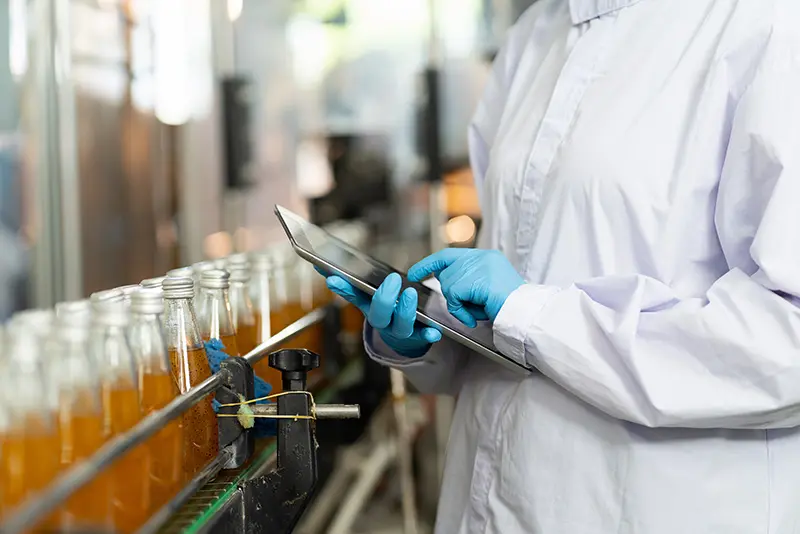Food and beverage factories use equipment like mixers, ovens, conveyor belts, and refrigeration units. If any of these machines break down, it can stop production and lead to waste. Worse, broken equipment can cause contamination, making food unsafe to eat.
Regular food & beverage production maintenance helps keep machines running properly and prevents food safety risks.
CMMS for Food & Beverage Production Maintenance
A CMMS makes maintenance easier and more effective. Imagine a beverage company that produces thousands of bottles of juice every day. If the bottling machine breaks, production stops. With a CMMS, the company can track maintenance on the machine, schedule regular inspections, and quickly assign repairs when needed. With this data, manufacturers reduce the risk of breakdowns and keep production running smoothly.
Here’s how CMMS helps food and beverage manufacturers.
1. Schedules Preventive Maintenance
Preventive maintenance means fixing problems before they happen. A CMMS helps manufacturers create schedules for regular checkups on equipment. For example, it can remind technicians to clean and inspect machines weekly or replace parts every few months. By following these schedules, factories can avoid breakdowns and costly delays.
2. Tracks Work Orders and Repairs
A CMMS enables managers to generate work orders, ensuring the right technicians handle the job. The system tracks who is performing the repair, what parts are required, and when the task is completed. With CMMS, your team can streamline repairs for faster, more efficient maintenance.
3. Monitors Equipment Performance
A CMMS monitors equipment performance, tracking energy usage and task completion times. If a machine consumes more energy than usual or slows down, the system alerts managers to potential issues. Detecting problems early prevents major breakdowns and ensures smooth production.
4. Manages Spare Parts and Inventory
Food and beverage factories rely on spare parts like belts, motors, and filters to keep machines operating smoothly. A CMMS monitors inventory levels and notifies managers when it’s time to restock. Efficient parts management helps prevent delays and ensures timely repairs.
5. Improves Food Safety and Compliance
Food manufacturers must follow strict safety rules to make sure their products are safe to eat. A CMMS helps track maintenance records to prove that equipment is being properly cleaned and inspected. When regulatory agencies, CMMS documentation helps businesses pass food safety inspections and avoid fines.
6. Reduces Downtime and Saves Money
Every minute that a production line is down can cost a company thousands of dollars. By keeping up with maintenance and fixing issues quickly, a CMMS helps manufacturers avoid unexpected shutdowns. Food & beverage production maintenance saves money and keeps food production on schedule.
CMMS for Reliable Food & Beverage Production Maintenance
Food and beverage manufacturers need reliable machines to keep up with demand and ensure food safety. A CMMS helps manage maintenance by scheduling preventive tasks, tracking repairs, monitoring equipment, managing spare parts, improving safety, and reducing downtime. With a CMMS in place, food and beverage manufacturers can work more efficiently, save money, and produce high-quality products without interruptions.
Investing in a CMMS is one of the smartest ways to ensure a factory runs at its best. Contact us to get started today!


